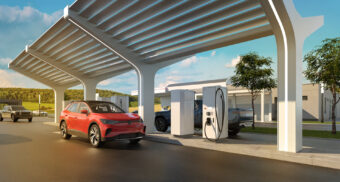
Numerous measuring instruments, sensors, actuators, electronic transmitters and other devices hidden in the depths of a plant constantly record data on the flow of air, gas, water or thermal energy. With the emergence of new technologies and companies specializing in digital transformation, the conditions have been created for this source of valuable information to be the starting point for the industry’s transition to sustainable business. Contrary to the conventional production process, in which a carefree attitude towards resources such as water, heat or electricity reflected the general spirit of the times, today, there is a new model based precisely on the measurements of the consumption of various resources in the plants themselves.
This modern production process implies that all operations are fully connected, flexible and self-optimizing. ABB, the world’s leading engineering company, stands out among the companies that can provide this to increasingly demanding industries. Their software solutions in power engineering, robotics, automation and electric drives have been implemented in many factories, power plants and other facilities, achieving greater productivity, safety and reliability while reducing the carbon footprint.
ABB in the fight against the consequences of climate change
It is known that there is no good management without measurement, and the achievement of sustainability in the industry is based precisely on the careful collection of consumption data. Research has shown that global electricity consumption could be reduced by up to 10 per cent if the world’s 300 million electric-powered industrial systems were replaced with optimized, high-efficiency equipment. However, that would not be the only benefit. As a result, emissions of harmful gases, the main cause of global warming, would be reduced. As a world leader in resource efficiency, ABB enables the energy transition in factories, power plants and other industrial facilities. Their solutions help reduce emissions of harmful gases and preserve natural resources in the industry. They also gave a time frame to their ecological aspirations. They plan to help their customers reduce annual CO2 emissions by 100 million tons by 2030, which is the amount of annual emissions emitted by 30 million internal combustion engine vehicles.
IN FOCUS:
- GREEN SPACES IN CITY AREAS UNDER THREAT
- WITH CREATIVE IDEAS FOR GREENER SERBIA
- GOOD POLICIES AND INNOVATIVE TECHNOLOGIES FOR A GREEN TRANSITION
What does it look like in action?
Six years ago, the Swedish battery manufacturer Northvolt sought a partner to develop a new technical solution. They found the perfect collaborator in ABB, which accelerated the implementation of that solution through electrification and automation. The applied technology enabled the transformation of the factory. Northvolth is today the world’s most environmentally friendly battery manufacturer, but it is not the only Swedish company to which ABB has provided this very flattering title. You may have heard about the new textile raw material called Circulose® or the term “circular fashion”.
A company from Stockholm has developed a technology that enables a new life cycle for used cotton and other materials with a high percentage of cellulose. Instead of new cotton, clothing factories can now use Circulose, a biodegradable pulp derived entirely from textile waste. For this Swedish factory to meet all the criteria of the circular economy, they hired ABB to introduce complete automation of operations, a quality measurement system and electrification. At ABB, they say they create innovation and push the boundaries of technology to enable a greener future for customers, industries and society. Their sustainability initiative, Mission to Zero™, which should accelerate the transformation in the industry, speaks for itself. It is an open-source program that allows companies to use and modify technical drawings for smart buildings with their energy production from renewable sources and solutions for its storage.
By using the incredible capabilities of technologies to digitally connect all components within an industrial ecosystem so that they are subject to control, thanks to the connection of data on heating, lighting, ventilation, security and room utilization, energy consumption can be drastically reduced, and with it, harmful gas emissions. ABB’s expertise and experience represent safe support for companies on the way to achieving goals such as reducing the carbon footprint and, ultimately, climate neutrality by 2030 and 2050.
Prepared by: Jovana Marković
Read the story in the new issue of the Energy portal Magazine ENVIRONMENTAL PROTECTION



